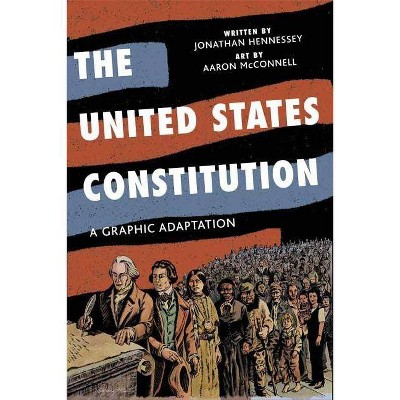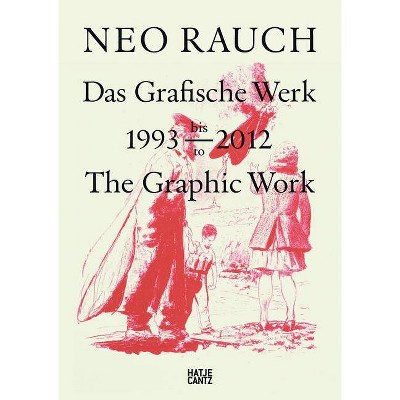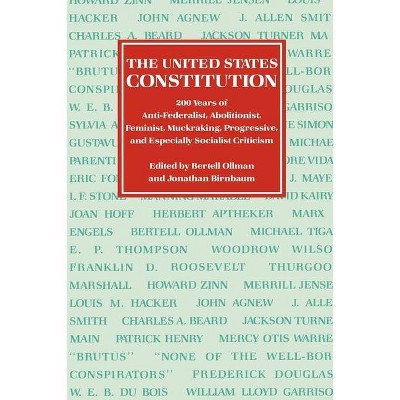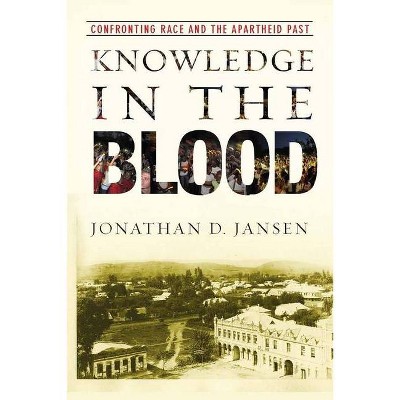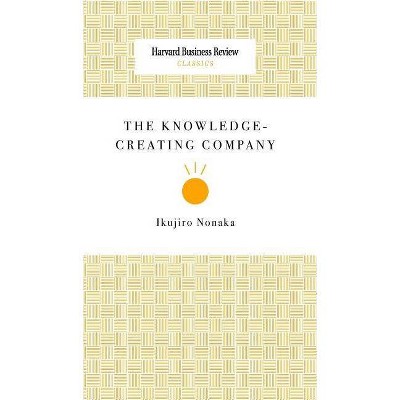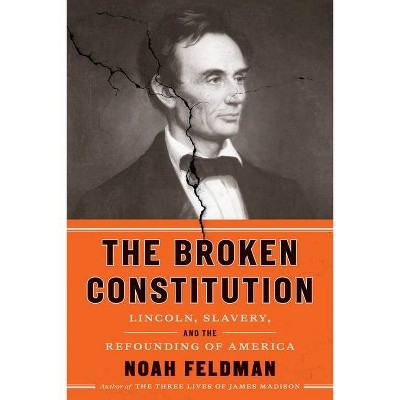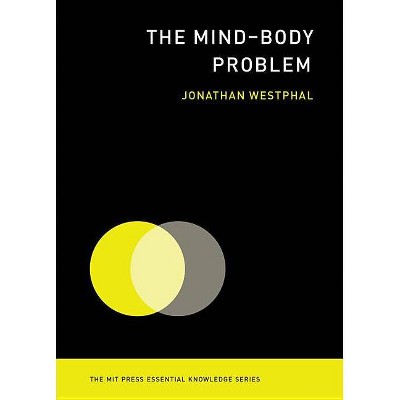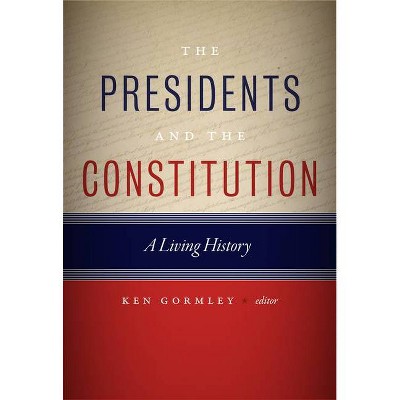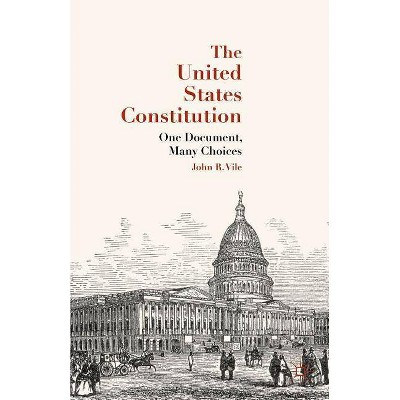The Constitution of Knowledge - by Jonathan Rauch (Hardcover)
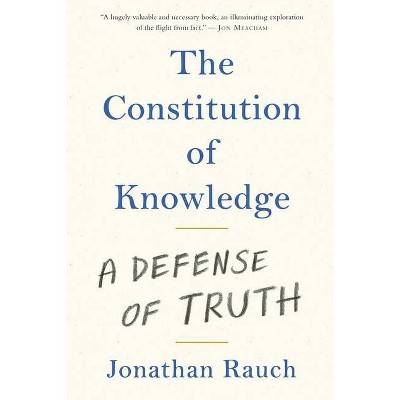
Similar Products
Products of same category from the store
AllProduct info
<p/><br></br><p><b> About the Book </b></p></br></br>"Disinformation. Trolling. Conspiracies. Social media pile-ons. Campus intolerance. On the surface, these recent additions to our daily vocabulary appear to have little in common. But together, they are driving an epistemic crisis: a multi-front challenge to America's ability to distinguish fact from fiction and elevate truth above falsehood. In 2016 Russian trolls and bots nearly drowned the truth in a flood of fake news and conspiracy theories, and Donald Trump and his troll armies continued to do the same. Social media companies struggled to keep up with a flood of falsehoods, and too often didn't even seem to try. Experts and some public officials began wondering if society was losing its grip on truth itself. Meanwhile, another new phenomenon appeared: "cancel culture." At the push of a button, those armed with a cellphone could gang up by the thousands on anyone who ran afoul of their sanctimony. In this pathbreaking book, Jonathan Rauch reaches back to the parallel eighteenth-century developments of liberal democracy and science to explain what he calls the "Constitution of Knowledge"--our social system for turning disagreement into truth. By explicating the Constitution of Knowledge and probing the war on reality, Rauch arms defenders of truth with a clearer understanding of what they must protect, why they must do--and how they can do it. His book is a sweeping and readable description of how every American can help defend objective truth and free inquiry from threats as far away as Russia and as close as the cellphone."--Provided by publisher.<p/><br></br><p><b> Book Synopsis </b></p></br></br><p><b>Arming Americans to defend the truth from today's war on facts</b></p><p><b>"In what could be the timeliest book of the year, Rauch aims to arm his readers to engage with reason in an age of illiberalism."<br>--<i>Newsweek</i></b><p><b>A <i>New York Times</i> Book Review Editors' Choice</p></b><p>Disinformation. Trolling. Conspiracies. Social media pile-ons. Campus intolerance. On the surface, these recent additions to our daily vocabulary appear to have little in common. But together, they are driving an epistemic crisis: a multi-front challenge to America's ability to distinguish fact from fiction and elevate truth above falsehood.</p><p>In 2016 Russian trolls and bots nearly drowned the truth in a flood of fake news and conspiracy theories, and Donald Trump and his troll armies continued to do the same. Social media companies struggled to keep up with a flood of falsehoods, and too often didn't even seem to try. Experts and some public officials began wondering if society was losing its grip on truth itself. Meanwhile, another new phenomenon appeared: "cancel culture." At the push of a button, those armed with a cellphone could gang up by the thousands on anyone who ran afoul of their sanctimony.</p><p>In this pathbreaking book, Jonathan Rauch reaches back to the parallel eighteenth-century developments of liberal democracy and science to explain what he calls the "Constitution of Knowledge"--our social system for turning disagreement into truth.</p><p>By explicating the Constitution of Knowledge and probing the war on reality, Rauch arms defenders of truth with a clearer understanding of what they must protect, why they must do--and how they can do it. His book is a sweeping and readable description of how every American can help defend objective truth and free inquiry from threats as far away as Russia and as close as the cellphone.</p><p/><br></br><p><b> Review Quotes </b></p></br></br><br>"In 'The Constitution of Knowledge, ' Jonathan Rauch makes a convincing case that we still need our institutions of expertise and the people who work for them. . . . Mr. Rauch's defense of the constitution of knowledge is an insightful and important reminder of the real goods produced by expertise."<br>--<i>The Wall Street Journal</i><br><br><br><p>"Mr Rauch's book is a manifesto for liberals and eccentrics, which explains how carefully the great, distributed knowledge-making network has been assembled, how enduring it has proved--yet how fragile it seems."<br>--<i>The Economist</i></p><br><br><p>"In what could be the timeliest book of the year, Rauch aims to arm his readers to engage with reason in an age of illiberalism. Nothing is off limits in this ingenious work which builds on his Kindly Inquisitors. Anyone curious about the state of American discourse and culture will devour it."--Juliana Rose Pignataro, <i>Newsweek</i></p><br><br><p>"The digital age was supposed to bring about the blessings of unlimited knowledge fueled by radically egalitarian free speech allowing everyone to access, share, and learn from freely available information to the benefit and progress of all. Instead, an epistemic crisis supercharged by viral disinformation and indifference to truth has bred deep cynicism about the benefits of free speech and the liberal ideals that underpin this increasingly unpopular idea. In his unputdownable new book, Jonathan Rauch provides both a surgically precise diagnosis and a promising cure for the ailments that torment the twenty-first century with its crisis of authority, distrust, and rampant tribalism. We ignore Rauch's warning and prescription at our own peril."<br>--Jacob Mchangama, founder and executive director of Justitia; author of <i>Free Speech: A History from Socrates to Social Media</i></p><br><br><p>"Thanks to a global epidemic of nihilistic trolling, manipulative disinformation, and addictive outrage, modern democracies are facing an existential challenge: it's not merely that their citizens don't agree on politics, they don't agree on the nature of truth itself. In <i>The Constitution of Knowledge</i>, Jonathan Rauch offers an original definition of this epistemological crisis, as well as a range of innovative solutions. It's no exaggeration to say that this is a book that anyone who cares about truth and democracy needs to read."<br>--Anne Applebaum, author of <i>Twilight of Democracy: The Seductive Lure of Authoritarianism</i></p><br><br><p>"Liberty, of course, requires constant vigilance, but who would have thought until recently that the idea of truth needed defending? Sadly, we now see that it does, but happily, Jonathan Rauch has come to the rescue of both truth and liberty in this thought-provoking, essential work."<br>--Mitchell E. Daniels Jr., president of Purdue University and former governor of Indiana</p><br><br><p>"Long one of the country's wisest and most honest voices, Jonathan Rauch has written a hugely valuable and necessary book, an illuminating exploration of the flight from fact. If, as the Gospel of John put it, the truth shall set us free, then count Rauch among the liberators."<br>--Jon Meacham, historian; author of <i>His Truth Is Marching On: John Lewis and the Power of Hope</i></p><br><br><p>"Rauch's graceful and accessible writing takes us into the abyss of a dark new age, where Trumpian disinformation and even stifling wokeness threaten the search for truth, but then shows us the path to reality-based uplands. Rauch proves there really is a constitution of knowledge, if we can only keep it."<br>--James Comey, former FBI director; author of <i>A Higher Loyalty</i> and <i>Saving Justice</i></p><br><br><p>"The ability to talk in good faith about a shared reality is a foundational element of civics that we didn't know we had until we suddenly and surprisingly lost it. Jonathan Rauch explains how we got it in the first place and how we are now letting it slip away. His telling of the story is well grounded in history and philosophy as well as in the very latest dispatches from the meme wars. Readers will come away from <i>The Constitution of Knowledge</i> not just concerned about the mess we're in, but also with new ideas as to how we might dig ourselves out of it."<br>--Neal Stephenson, author of <i>Snow Crash</i> and <i>Fall</i>; or <i>Dodge in Hell</i></p><br><br><p>"Twenty-five years ago, Jonathan Rauch's <i>Demosclerosis</i> ignited interest in the problem of government immobilized, like Gulliver among the Lilliputians, by thousands of threads of transactions on behalf of factions. Now this singularly talented analyst addresses an even more dangerous problem--the collapse of shared standards of truth. He is a James Madison for this era, a framer of a Constitution of Knowledge."<br>--George F. Will, author of <i>The Conservative Sensibility</i></p><br><br><p>"Why can't we have shared facts anymore? The most profound and useful answer is contained in this book. Jonathan Rauch shows us how it is that societies ever come to know things. It is only after we appreciate the miracle of knowledge production (the "constitution" of knowledge) that we can understand the tragedy befalling us now, as key institutions and practices decay. This book is a magnificent integration of psychology, epistemology, and history. It is among the three or so most important books I have read in the last five years. It is a joy to read--deep insight after deep insight, embedded in playful writing, about one of the most important problems of the 2020s."<br>--Jonathan Haidt, Thomas Cooley Professor of Ethical Leadership, NYU-Stern School of Business; author of <i>The Righteous Mind</i>; co-author of <i>The Coddling of the American Mind</i></p><br><p/><br></br><p><b> About the Author </b></p></br></br><p><b>Jonathan Rauch</b> is a senior fellow in the Governance Studies program at the Brookings Institution and a contributing writer of <i>The Atlantic</i>. His previous books include <i>Kindly Inquisitors: The New Attacks on Free Thought.</i>Rauch resides in Washington, DC.</p>
Price History
Cheapest price in the interval: 16.79 on October 23, 2021
Most expensive price in the interval: 16.79 on December 20, 2021
Price Archive shows prices from various stores, lets you see history and find the cheapest. There is no actual sale on the website. For all support, inquiry and suggestion messagescommunication@pricearchive.us
